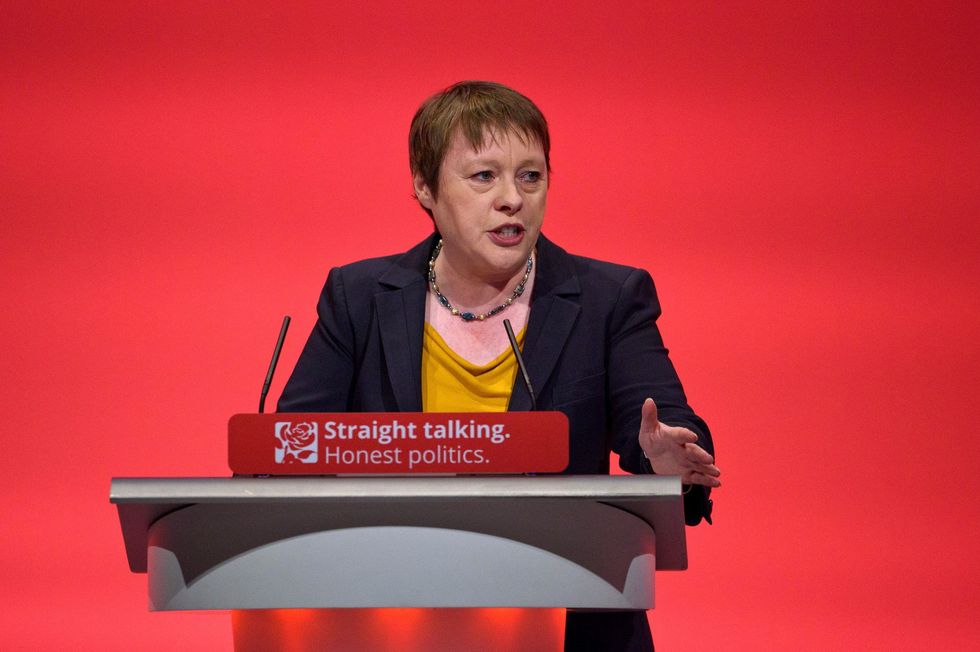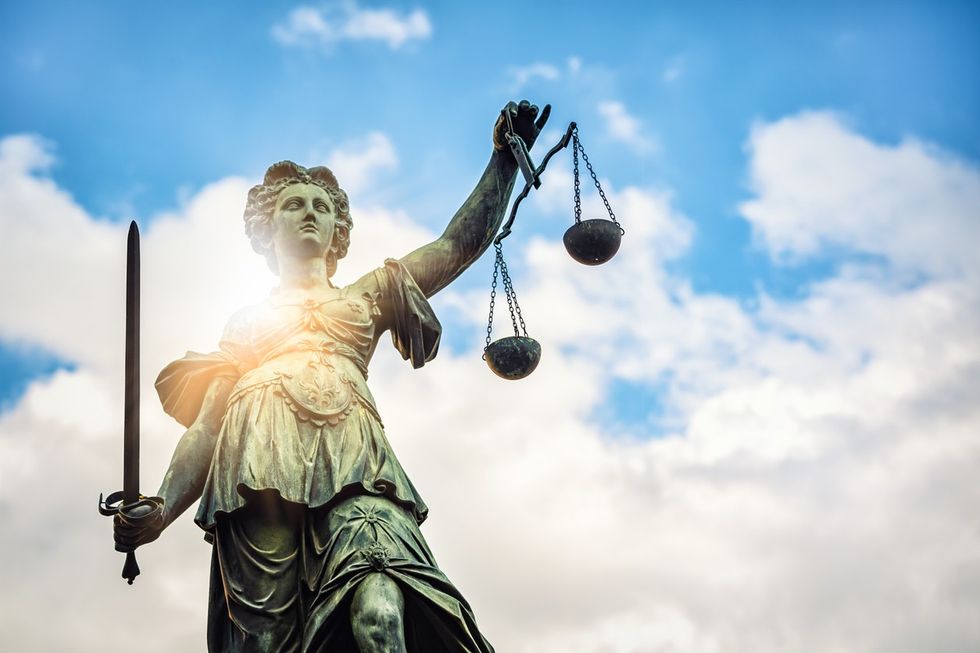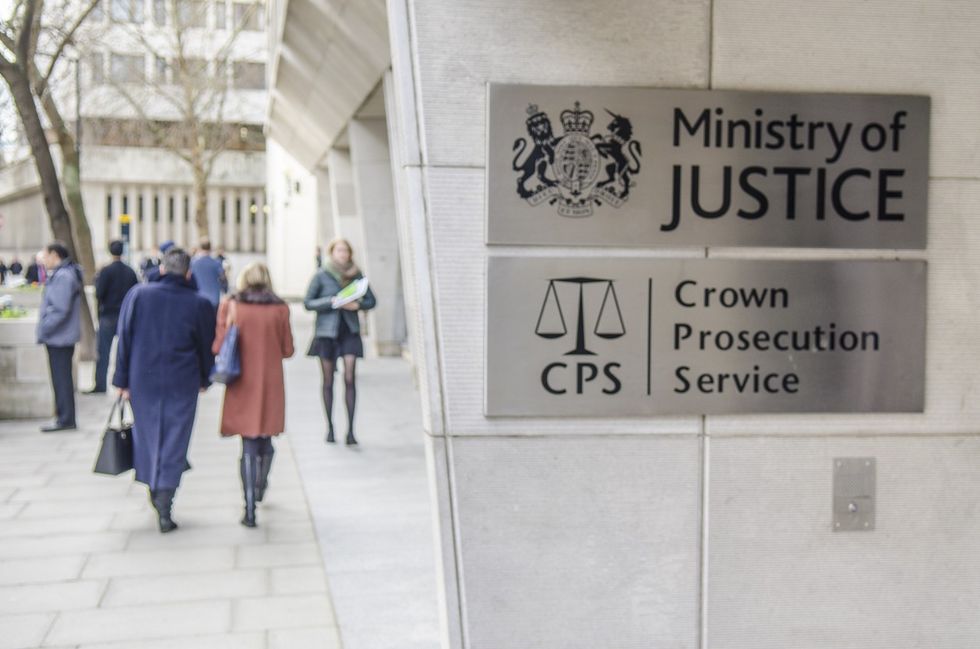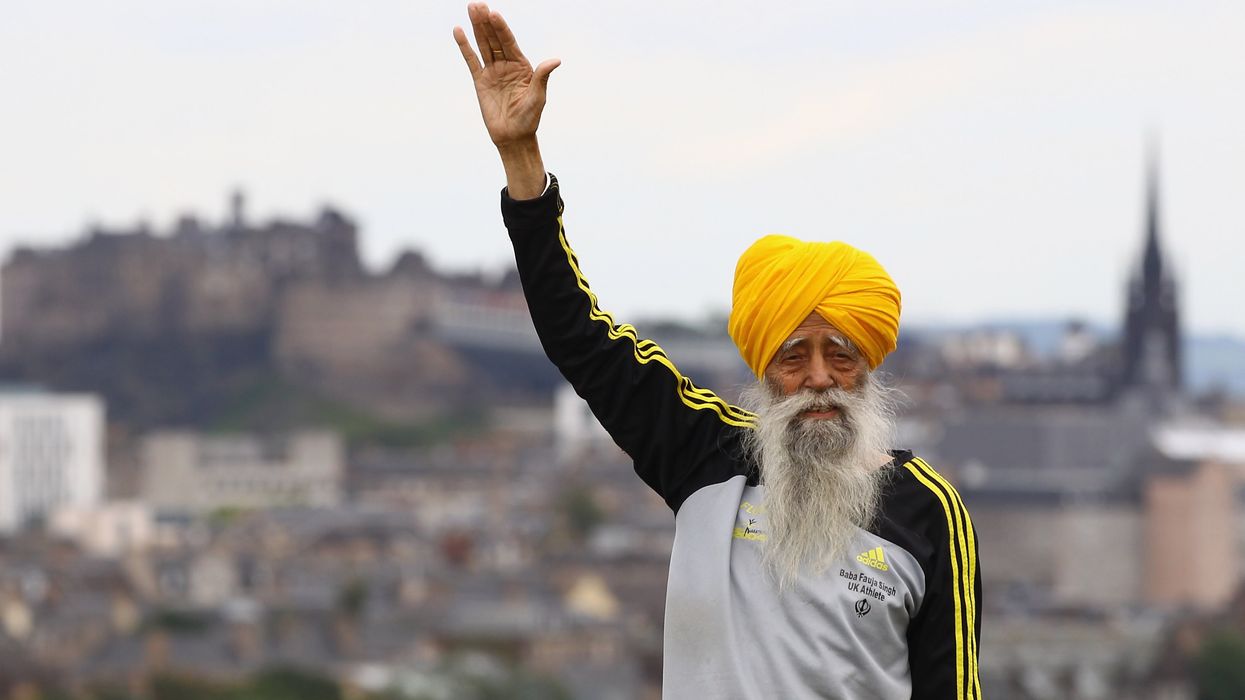A new whistle blowing policy for judges is “virtually ineffective”, “a missed opportunity”, and “unlikely to make effective change” to the existing culture of fear, bullying and racism in the judiciary, angry south Asian judges have told Eastern Eye.
They also criticised the appearance before the justice select committee of the chair of the Justice Appointments Commission (JAC), Lord Kakkar, summoned to explain diversity in the judiciary.
Analysis by Eastern Eye revealed that if you are white, you are almost two-and-a-half times more likely to be “recommended for immediate appointment” than if you are black, Asian, minority ethnic (BAME).
MPs held the hearing last week (29) after eight judges wrote to the committee in April following an Eastern Eye exposé into toxic working conditions in their profession.
“The policy is virtually ineffective,” said one judge, who spoke on the condition of anonymity.
“It doesn’t work for reporting matters that amount to systemic bullying and racism by senior judges as they will park that as a grievance issue.
“It is missing independence because the judges we want to whistle blow about are the ones who will carry out the investigation, and who will receive the reports and deal with them.
“It is unlikely to make any changes to the toxicity of working in the judiciary.”
Another said that whistle blowing is the last resort and only happens when wrongdoing is not tackled.
The whistle blower becomes the hunted, and others who would support the complainant are scared off, said judges.
“Judicial panels that deal with such complaints merge with human resources,” said one non-white judge. “Effectively, a witch hunt ensues to disprove the complainant.
“The complainant is singled out, and colleagues fear for their own ‘safety’, thus crucial evidence is lost.”

Judges warned
The policy is only available on the judiciary internal website [intranet], but Eastern Eye has seen the 12-page document.
Judges are allowed to blow the whistle to a relevant minister and so-called “prescribed bodies”.
These include the HM Revenues and Customs, the Financial Conduct Authority, and the Serious Fraud Office.
Nowhere in the document does it say that concerned judges can go to their MP.
And the policy warns judges that they will only have “limited protection” if they go to the “media, campaign groups, on social media or political parties”.
“I am sorry that the judiciary has missed a brilliant opportunity to effect permanent change with whistle blowing at its heart,” said one south Asian judge.
“We really need it. Those who have blown whistles know how they were treated.
“Senior judges wheeled out to undermine, disparage and dismiss their claims to protect the club of senior judiciary, the Ministry of Justice and power.
“I wish I had any confidence at all. I don’t think many realise how much courage it takes, how much money, how they are treated so badly that their hair and teeth fall out, suicides are planned, and the world they once inhabited quite happily turns into a hostile environment.
“The judiciary is not interested in improvement or reform but in silencing criticism and destroying its detractors.”
No confidence
A senior circuit judge, Jennifer Eady, chaired the whistle blowing committee.
On paper she seemed ideal to lead the committee with 25-plus years’ experience of UK and EU labour and discrimination law.
Eady practised this area as a silk [Queen’s Counsel], but one white judge was scathing in their assessment of the final policy.
They said, “I lack confidence in the whistleblowing policy as I was not permitted to provide any input to the draft policy. That a whistleblowing policy was rushed out without proper consultation nearly two years after the Supreme Court decision is a concern, as are its limitations.
“As a reactive knee-jerk policy, this will tick a box but fail to change the negative, ‘blame storming', ’shoot the messenger', unsupportive, non-reflective culture I work in on a daily basis, driven by target obsessed cost-cutting civil servants and senior judiciary.
“It will not put a human face on this mammoth organisation, where financial targets and cost-cutting take precedence over the time needed to listen carefully and fully to the life changing cases that come before us.”
Starting point
Among the committee members is the founder of the Justice Support Network (JSN), Judge Kaly Kaul, which was formed in March.

According to the JSN website, its aim is to “support, listen, help with your concerns, whether those relate to appointment to higher roles, obtaining full time appointment, advancement, allocation of work, working relationships, issues with those who manage us, welfare, safety at work generally or with the many agencies in relation to which we come into contact”.
“I can say that my colleagues and I are going to do our best to implement a policy fairly, that we did not draft,” said Kaul.
“Our job is to signpost judges to the policies, not to support them as such, and work with HR. We will do our best.
"Is it perfect? Well, no law or policy is ever perfect, but what it is, is a starting point.
“As with other policies, we hope that the senior judges will revisit it if it does not work as intended or judges are not confident in using this new tool to make the judiciary stronger and better.
“We all support the administration of justice and are doing what we can in different ways.”
Over the past 12 months, white and non-white judges have told Eastern Eye that they have no confidence in the system of appointing judges.
We have reported how judges feel they are black balled by senior leaders in “secret soundings”.
This is where judges give their opinions covertly, and these are never recorded but ultimately influence an appointment.
Kakkar grilled
Last week’s justice select committee grilled the chair of the appointments commission Lord Kakkar for almost two hours, leading to some pointed questioning and critical observations of the peer.
The Garston and Halewood Labour MP, Maria Eagle, described Kakkar as “complacent”.
“It seems to me that 15 years to make a real change in the diversity of judicial appointments, and yet you seem today to be effectively saying that it’s as good as it can be,” she said.
“You said we do everything we possibly can. When it's been put to you that BAME people who apply consistently do worse in terms of appointments, and you've basically said ‘Oh, well, we appoint on merit’.
“You seem to be blaming those who don't get through the process for their failure.
“And that's why you've come across as complacent to me. Is that really the best that you can do?”

Kakkar apologised for giving “that impression”.
But the MP pressed on, “It seems to me that you appear to be saying the reason why we don't have appropriate representation is because the candidates aren't sufficiently meritorious.
“And I just think that completely ignores any concept or understanding of discrimination and indirect discrimination and structural problems, and I'm afraid that you still sound complacent to me.”
Kakkar said the JAC regularly reviewed its procedures, but he rejected accusations the body he chairs discriminates against anyone.
“I can't accept that we are discriminatory, and that we have failed to put effort and attention on a regular basis in trying to achieve what we all want to do, which is to achieve a greater diversity in the judiciary, both in terms of gender, in terms of minority ethnic candidates, in terms of disability, and in terms of social mobility,” said the peer.
Anxiety
The Labour MP for Lewisham, Janet Daby, tackled Kakkar about the impact of Eastern Eye reports of bullying, racism and sexism on candidates applying for posts.
“I have to say, [I am] deeply anxious about the impact that recent press coverage has had on potential candidates and applicants,” responded the peer.
“That's why as soon as it first came out, we updated our website, in the area for applicants, so that they could understand how statutory consultation works.”
The peer then revealed that his commission planned to start an independent review of the statutory consultation process.
“That review will basically look at how it currently works, the framework, and what improvements might be made to the way that we seek and apply statuary consultation in the future,” said Kakkar.
“I have to say that we've looked at this before, we don't have any evidence that statutory consultation is working against different candidates from different groups. But I do believe we have a strong duty to look at this matter.”
But he rejected the idea of investigating whether bullying and discrimination had an impact on recruitment.
“I can reassure the committee, that there is no bullying and harassment in the judicial appointments process,” said Kakkar.
“We look at this very carefully, and I am chairman of the Judicial Appointments Commission. I am not the supremo that can tell everybody in the judiciary, in the professions, or anywhere else, what to do.
“What I can do, though, as chair of a forum where all parties are represented, is to ensure that when these issues are raised, we can have a discussion.”
JAC complacency
The peer was pressed further by her colleague for Hammersmith, Andy Slaughter, about why the independent review should not look at the concerns raised by Eastern Eye.
“We are concerned by that. Anything that has an impact on discouraging candidates to seek Judicial Appointments is something that we're concerned about, of course.
“We of course, look at everything, all the barriers to judicial appointment.
“Again, I don't wish to keep on coming back to it, it's not to abdicate responsibility, but where those barriers lie outside the direct responsibility or control of the JAC, we will of course, raise concerns about those barriers.”
But south Asian judges criticised the JAC.
“Nothing Lord Kakkar said gave me any confidence that secret soundings do not take place and work unfairly against the judges who speak out against the system,” responded one.
“It prejudices them before they even get a foot in the door as senior judiciary use secret soundings as their own personal way of recruiting their friends to the team.
“The complacency that ‘everything is ok and independent evaluation is taking place is ridiculous.”

Others believe it is time to replace the JAC.
“The JAC was set up with the best of intentions and aims, sadly it appears that it has succumbed to the never-ending desire of the judiciary to run everything, and control everything,” said one.
“It is now no more than a glorified recruitment agency for the senior judiciary. We often hear who is going to be appointed before ever a competition is ever run, it’s an open secret.
“The number of times I have heard of Judges saying ‘don’t worry about the JAC, they can be sorted, it’s just a call’,” said another.
“The judges in positions of influence say, she or he won’t get appointed, ‘leave it to me’.
“The JAC should stop allowing itself to be used. They have whistleblowing protection, I wish someone would do that, reveal the list of ‘never to be appointed’, the external influences over the commissioners.
“It is deeply disappointing to say that I feel it is worse now than when we had a proper lord chancellor, someone who was head of the judiciary and took responsibility.”
‘Scandalous’ appointments
One senior judge of colour described the entire appointments process as “shameful and disreputable”.
“It is scandalous that the JAC appears to be unwilling or unable to accept the institutional discrimination which exists in judicial appointments,” they said.
“The submission to the EHRC [Equality and Human Rights Commission], made by the Judicial Support Network, demonstrates that every aspect of the appointments system is flawed.
“Lord Kakkar and the senior management at the JAC have seen a copy of the submission, yet at no point during the select committee proceedings did they comment about its contents.
“To think that the only unfairness in the system is in the statutory consultation process, or secret soundings, is a shocking denial on the part of the JAC that the whole appointments system is, as the submission states, ‘rotten to the core’.”

Judges also have no confidence in the forthcoming independent review.
One retorted, “The JAC has done what it usually does when its processes are found to be wanting.
“It orders a purportedly independent enquiry to be conducted by an organisation on a selected part of its process, in this case, its secret soundings, which will largely be supportive of what it has done in the past.”
Another said the JAC and senior judiciary were too eager and too busy to blame the Law Society and Bar Council for the lack of diversity, when the problem was secret soundings.
“There is no fairness in any of this,” they confided. “Those who are diverse progress but at a price that not all of us are willing to pay.
“It is unfortunate that the EHRC will not be investigating secret soundings.
“I know of people who’ve been marked suitable for appointment suddenly disappearing, feedback re-written, and lives destroyed.
“It’s just the way it is. You would have thought the system to appoint judges would be at the heart of what the EHRC stands for?”
The EHRC has refused to investigate claims of bullying, racism and sexism in the judiciary.
Eastern Eye understands it is because of “limited resources” which do not “align with both the specific aims set out in our current business plan and the criteria in our litigation and enforcement policy”.
MoJ settlement
In another development, the Ministry of Justice (MoJ) has settled its racism, victimisation and harassment case against former recorder and immigration judge, Peter Herbert.
As Eastern Eye reported in April, the employment tribunal case was scheduled to be heard in Leeds this week (5).
Although the exact details are confidential, and neither side admits liability, we understand the former judge did receive a pay-out.
“I took the view that I had successfully held the senior judiciary accountable for their actions,” the chair of the Society of Black Lawyers told this newspaper.
“I am confident that the JSN will take forward allegations of race and sex discrimination, bullying and harassment by my former colleagues.
“This settlement allows me to walk away with my reputation and dignity intact, knowing that I have forced the senior judiciary to answer for their decisions.”
But judges have criticised the MoJ, one describing it as playing “high-stakes poker” with the public purse.
“I am unsurprised that the MoJ settled Judge Herbert’s case at the door of the court, but I seriously question why the MoJ ‘fights’ its own judges using taxpayers’ hard-earned money,” said one judge.
“Even throughout the pandemic, when people including judges had no work or income, they clearly felt they could ratchet up legal costs for an entire year during lockdown, playing a risky high-stake game of poker with public funds.
“Yet at the same time they dictated to the public they should mediate before issuing legal proceedings.
“This is not the first time that judges have issued and won proceedings against the MoJ or settled just at the door of the court.
“It is about time the MoJ had an emotionally intelligent response to such litigation to save public funds instead of fighting to the bitter end then flopping over when the legal costs are at their highest.”
Seriously wrong
One south Asian judge said the MoJ knew it had to settle.
“The MoJ know they got this seriously wrong, and they were terrified of the evidence that would come out.
“This case would have exposed the racism bullying and harassment from the highest level of the judiciary, and they were too scared to let this come out in public.
“It suited them to quash this by settling.”

The MoJ lost its court battle against “whistle blower” Judge Claire Gilham, in 2019, forcing it to create the current whistle blowing policy.
“The very fact that the MoJ was willing to settle Peter's claim is significant. The MoJ was rightly castigated for the enormous sums it spent fighting Claire's claim, and it was bad enough that Peter had to take his claim to the wire.
“There’s been a lot of criticism recently of the BBC and its apparent attitude that it knows best.
“Sadly, there seems to be a similar view in the government’s legal departments of an unwillingness ever to consider that there is another valid point of view.”
Analysis
The chair of the Judicial Appointments Commission (JAC) started his submission with a blizzard of data.
Lord Kakkar’s aim was to show how much better the body he leads is doing over a 15-year period.
“Since the JAC was established, 16 per cent of applicants and 11 per cent of recommendations have been from minority communities,” he told the committee.
“In the eight-year period prior to the establishment of the JAC those figures were 3.5 and four per cent respectively.
“In 2020, minority candidates made up 12 per cent of all recommendations for legal roles, and 23 per cent of all recommendations for non-legal roles.
“Has that had an impact in terms of the composition of the judiciary? Well, if we look at the question of the courts to judiciary in its composition, for those from minority communities, 3.8 per cent in 2006, at 8 per cent now in 2020.”
Data
Statistics can prove and disprove claims. While the figures above may well be accurate, they only paint a partial picture.
It is worth pointing out that
- all minority groups are lumped into the BAME category. That means we do not know how different racial groups are truly faring.
- in 2011 14 per cent of the UK were non-white, which means despite the figures being 10 years out of date, the judiciary remains woefully ethnically unrepresentative.
But the judges who have spoken to Eastern Eye have always made clear that “secret soundings” prevent an applicant from progressing to immediate appointment, rather than their being short listed.
It may well be the case that judges of colour are vetoed before being shortlisted. An analysis of the 2020 figures reveals two significant statistics which the peer did not mention.
https://public.flourish.studio/visualisation/6644573/
Evidence of bias?
If you are a white candidate, you are almost 2.5 times more likely to be “recommended for immediate appointment” than if you not white.
We cannot say with absolute certainty that if you are south Asian that you are at a disadvantage.
But the JAC figures do break down the data into religion.
https://public.flourish.studio/visualisation/6644807/
Religion discrepancy
If we accept that most south Asians will fall into the Buddhism, Hinduism, Islam and Sikhism, and most white candidates would describe themselves as being Christian, we can make a direct comparison of how faith affects recommended appointments.
That shows that if you are Christian, you are almost two times as likely to be shortlisted than if you are from a major south Asian religion.
Secondly, if you are a Christian, then you are 2.3 times more likely to be “recommended for immediate appointment” than if you are a Buddhist, Hindu, Muslim and Sikh.
https://public.flourish.studio/visualisation/6644860/
The “Diversity of the judiciary 2020 statistics report” admits, “BAME individuals are overrepresented in applications for judicial appointment, but less likely to be successful”.
But worryingly it states, “Overall, compared to the pool of eligible candidates, success rates for BAME candidates were an estimated 17 per cent lower than for white candidates (not statistically significant)”.
Non-white judges concur with one select committee member who described Kakkar as “complacent”.
“Lord Kakkar knows exactly what is going on and that judges especially BAME judges are being vetoed before they even get to interview,” said one south Asian judge.
“This is unconstitutional as these judges never get the chance to put the record straight and address the lies made in the secret soundings.
“This is not the way to appoint a fair and meritorious judiciary. I am sickened.”


















